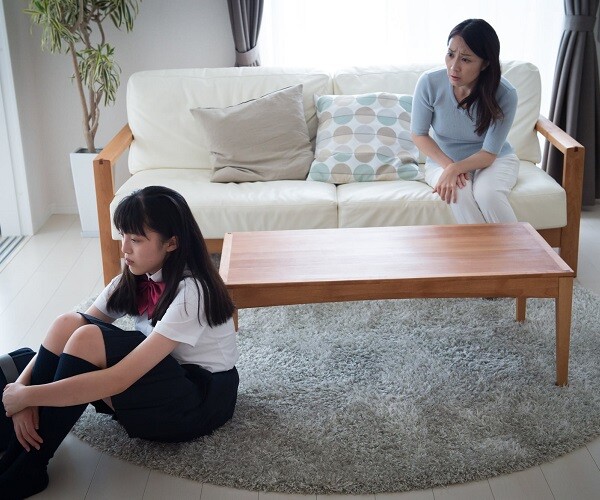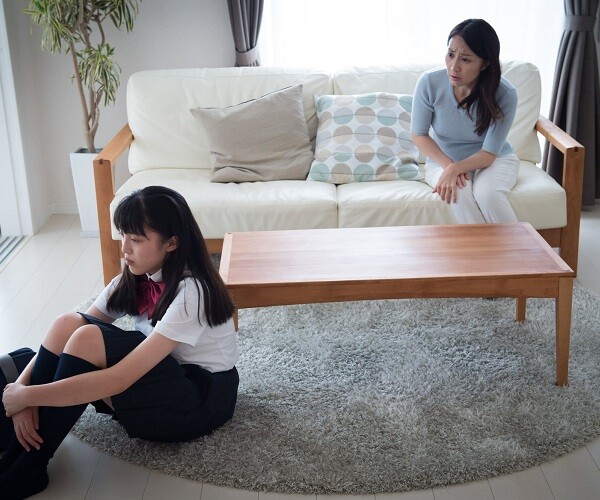“Understanding Your Child: Strategies for Effective Communication and Emotional Connection”
Understanding your child is crucial, but how do you improve it within the family? When children feel that their parents comprehend their thoughts, emotions, and challenges, they are more inclined to share private matters.

Illustrative image.
However, not all families achieve this level of mutual understanding. Many children feel neglected and unheard, leading them to exclaim, “You don’t understand me at all!” This could be a cry for help and a manifestation of their inner turmoil and longing to be understood.
One of the primary reasons for this disconnect is the generational gap. Parents grew up in a different social context, with distinct values and beliefs compared to the current generation. Consequently, they may struggle to empathize with their children’s issues, such as academic pressure, friendships, or romantic relationships.
Additionally, many parents lead busy lives, leaving them with limited time to listen and communicate with their children. To delve deeper into this matter, psychologist Nguyen Ngoc Vui offers insightful analysis and suggestions for parents to address this challenge effectively.

Psychologist Nguyen Ngoc Vui

Why do many children feel that their parents don’t understand them? Is it due to differences in the way children and adults express their emotions?
Indeed, one of the reasons is the disparity in emotional expression between children and adults. However, other factors also come into play.
Research suggests that many parents struggle to understand their children due to generational, cultural, and environmental differences, as well as varying economic backgrounds during their upbringing. These factors hinder parents from empathizing with their children’s circumstances.
From another perspective, children may have misconceptions about their parents. For instance, they might believe their parents are overly restrictive or that they fall short of their expectations regarding praise and recognition.
In my observation, the phrase “You don’t understand me at all!” is prevalent in many families. It is not merely an expression but a way for children to convey their emotions, a cry for help, or a display of frustration and powerlessness.
For example, a child might say, “You don’t understand me at all!” to end an argument or express their dissatisfaction with a failed attempt at persuasion. It carries different implications and reflects various situations within the family dynamic.

Should parents wait before discussing a child’s feelings or address them immediately after the child expresses their emotions?
This depends on the family’s communication culture. Some families foster an open dialogue, so when a child expresses such sentiments, parents should promptly investigate the underlying causes. They should explore what triggered the child to make such a statement and assess the level of understanding they have of their child.
Parents should first confer with each other, seeking to understand the true intent and needs behind the child’s message. Subsequently, they can seize appropriate opportunities to engage in conversations that help resolve the issue or simply address the child’s sense of powerlessness in specific situations. In some cases, the child may benefit from a moment of calm before discussing the matter further.
In reality, not all families have an open communication style. Therefore, the critical consideration is not whether to address the issue immediately but to discern the underlying message conveyed by the child. Is it a cry for help, a sign of distress, or an unmet need? Most often, this phrase is uttered during the child’s adolescence, especially in the tumultuous period leading up to puberty.

When a child says, “You don’t understand me at all!” how should parents respond? (The expert suggests some open-ended responses for parents)
Our responses should vary depending on the context. For instance, if parents react by saying, “This is just your perception; we do understand what you want,” it is essential to reassure the child. Here are some possible responses:
– “Can you tell us what’s going on?”
– “Can you explain your current emotions to us?”
– “What made you say that?”
– “Do you need a few minutes to calm down before we discuss this further?”
– “Can you give us an example of when we didn’t understand you?”
– “How can we better understand you?”
These responses not only focus on problem-solving but also convey to the child that their parents are making a sincere effort to comprehend their true emotions. They also signal the parents’ willingness to listen and empathize.

How can parents create a safe space for children to feel comfortable sharing their emotions and thoughts? Are there methods to teach children effective communication skills to express their emotions more clearly?
Research indicates that 65% of family issues stem from communication problems, and approximately 80% of family members lack the listening skills necessary to identify the root cause of arguments and tension. Therefore, parents should learn to listen attentively to foster understanding and effectively defuse conflicts.
Empathetic listening begins with acceptance and compassion for the child. Subsequently, specific skills come into play, such as maintaining eye contact, nodding to indicate attention, refraining from interrupting, and asking open-ended questions (e.g., How? Why? What?).
Regarding the second question, methods exist to teach children effective communication skills. Since emotions stem from thoughts, parents should help children understand their thought processes. This involves exploring their current thoughts, needs, desires, and expectations to label the emotion accurately and improve family communication.
The 4 Creative Ways to Discipline Your Child That Are 100 Times More Effective Than Scolding
The art of reprimanding your child is an age-old dilemma for parents. This introduction paragraph aims to present a unique and effective approach to disciplining your child, one that is 100 times more effective than traditional scolding methods. Presenting four innovative strategies that will revolutionize how you address your child’s misbehavior and foster a more positive and respectful relationship.





































